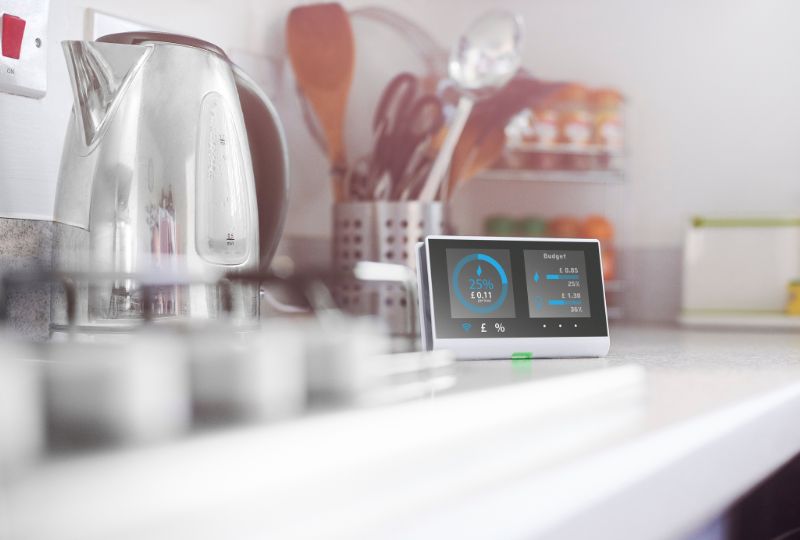The 8 most popular energy crisis questions answered!

1. When do energy prices go up?
Unfortunately for the consumer, Ofgem allows prices to increase every few months. We’ve had some, and there are more to follow.
The first price rise was in April 2022, then a more significant rise was seen in October 2022, with another on the 1st of January 2023. October’s price rise was a huge leap in expenditure for many households, with the average annual bill estimated at £2,500 a year after the increase in October, so the government stepped in.
Ofgem raised the price cap to a whopping £4,279 in January 2023, but consumers remain protected under the government’s Energy Price Guarantee until March. Another price cap update will be announced by Ofgem on 27th February 2023.
2. Will energy bills go up again after 31st March 2023?
While the most vulnerable are set to be supported, middle earners are likely to be placed under even more financial pressure with the loss of the £400 Energy Grant coming to an end in March, and the end of the current price cap in April.
Energy analysts Cornwall Insight are predicting April 2023’s price cap to be raised to £4,347 a year for a typical household.
There are conflicting suggestions that energy prices will begin to fall, and the energy cap will be reduced to £3,700 per year for typical use as the year rolls on. It remains to be seen what prevails, and whether the government changes tactics on support.
3. What is the government doing about energy bills?
The government pledged support for two years via the Energy Price Guarantee and the Energy Bills Support Scheme, wiping £400 off energy bills until March. The political shuffles of 2022 saw the two-year pledge rescinded.
Rishi Sunak has since promised extra help for 16 million of the most vulnerable households and is likely to increase windfall tax on oil and gas companies and the profits they make. It is hoped that this tax will then be used to support consumers in paying energy bills.
The government is currently reviewing their plans, while people and businesses hold their breath, not knowing what reduced support to expect once the scheme ends in April.
4. What is the Demand Flexibility Service?
On the evening of Monday the 23rd January, up to a million households were paid to use less electricity as part of a National Grid scheme called the Demand Flexibility Service, designed to save energy to prevent blackouts. The scheme only applies to those who use a smart meter.
Customers can save anywhere from a few pounds to £20 to reduce their energy between the times set by the National Grid, whether it’s delaying your washing machine or charging your electric vehicle.
It is unclear as to whether this scheme will continue to run throughout out the cold spell, or whether it is run ‘ad hoc’ as it was on Monday between 5pm and 6pm. If your energy supplier has signed up to the scheme, they will notify you.
5. Does everyone receive the £66 energy payments?
Unbelievably, yes. Even our Prime Minister received the £400 Energy Bills Support Scheme, which he pledged to donate to charity. This flagship scheme by the government knocks £66 off energy bills from October to March 2023 to help pay for more expensive energy. This has significantly helped lower and middle earners manage their winter bills.
If you pay by direct debit, you’ll see £66 knocked off your bill, although some utility companies are paying the funds directly into customers’ bank accounts. It has also surprised those on a prepayment meter who find the meter has already been topped up!
6. Is it worth installing a smart meter?
There are pros and cons to installing a smart meter. Some feel more in control and prefer to see their minute-by-minute energy spend. For others, it adds to their anxiety. As a result, some still prefer to supply meter readings and pay as the bills come in.

One big ‘pro’ is the accuracy of the readings and how it can help you to monitor your energy more effectively. The ‘con’ is that it takes a lot of monitoring to reduce your energy consumption. There are also well reported issues with getting them to work correctly, or discovering that, when you switch supplier, it is no longer ‘smart’.
Getting a smart meter is also proving tricky due to the increased demand. This blogger applied for one within minutes of receiving an email last August, to then be told it was no longer available, and remains on a waiting list five months later, missing out the Demand Flexibility Service.
There is also frustration surrounding the costs. While the smart meters are ‘free’, and backed by the government, this ‘free service’ has been provided by raising energy prices.
7. How much does it cost to boil a kettle?
An easy way to think about energy prices is to ask, ‘how much does it cost per cuppa?’.
A standard variable tariff of 34p per kw hour means that, if you’re running a 1,000-watt appliance for a full hour it would cost you 34p (check your bill to review your tariff).
Using the following sum: Power used (0.225kWh) x cost of one kWh (34p), the cost of boiling your kettle today is now around:
Full kettle (2 litres): 8pHalf-full kettle (1 litre): 4pTwo cups for tea (500ml): 2p
8. How much does it cost to use central heating?
This is a hard one to answer as it depends on the age, type, and the power of boiler, and the size and energy efficiency of home. But generally speaking, a 33kw boiler used to heat a 3 bed semi-detached house costs around £2.40 per hour.
This makes a 12-hour overnight stint a whopping £28.80!
A-Plan and the cost-of-living
Did you know that you can combine your car and home insurance to save £319*?
With the cost-of-living crisis, we don’t want you to pay more than you need to for your cover! Your local branch team experts are on hand to help you review your insurance policies to ensure you are not paying more than you need to, can help you combine policies, and check that you are effectively covered so that you don’t have to replace anything from your own pocket.
Follow more of our energy and cost saving tips via our guides below.
Sources: Colletta Smith, BBC Cost of Living Correspondent, Matthew Jenkins, energy expert at My JobQuote, Householdmoneysaving.com, Ofgem, moneysavingexpert.com.







